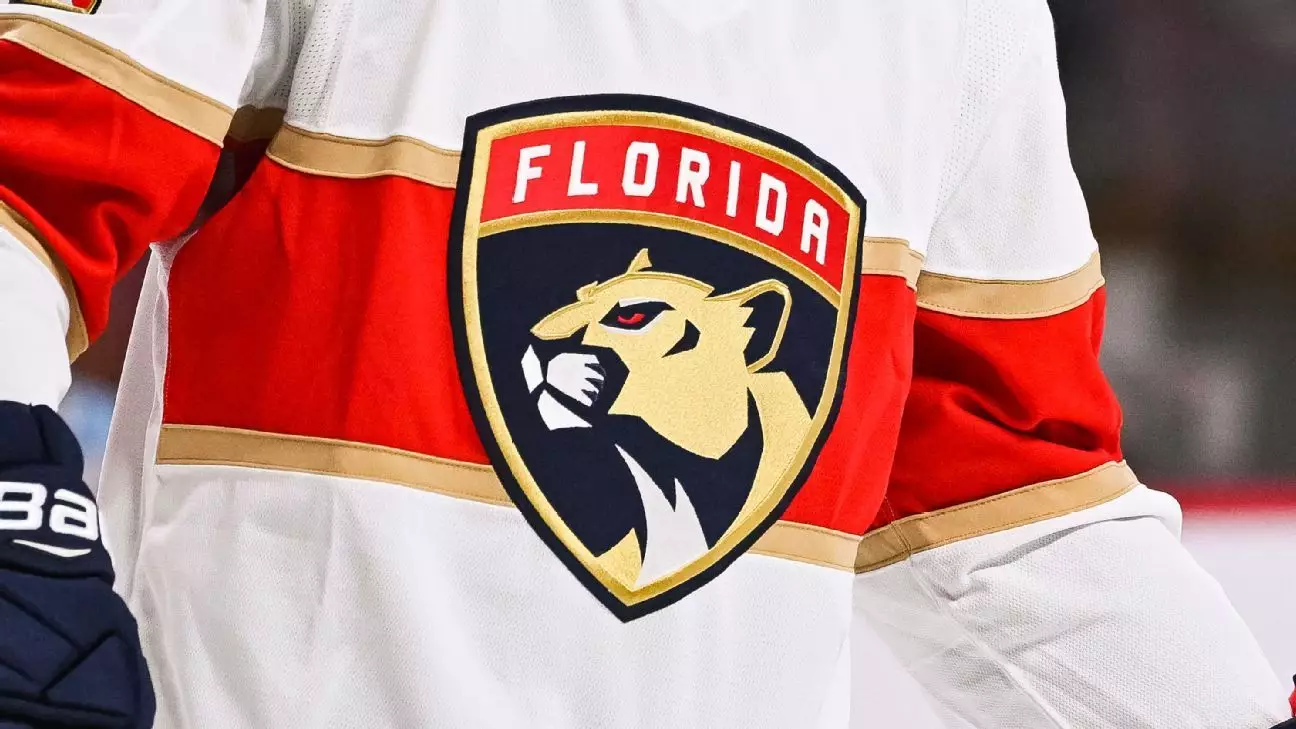The recent suspension of Doug Cifu, a minority owner of the Florida Panthers, has ignited a necessary conversation about accountability in sports and the impact of social media on public figures. On a night ripe with the potential for celebration, following the Panthers’ Game 4 victory in their playoff series against the Toronto Maple Leafs, Cifu’s incendiary remarks on social media caused a firestorm of backlash. The NHL moved swiftly to suspend him indefinitely after the controversial posts, which not only took a jab at a rival fan but also contained comments connected to the sensitive Israel-Palestine conflict and the provocative idea of Canada becoming the 51st state of the United States—an allusion heavily associated with former President Trump.
Cifu’s comments serve as a distressing reminder that power and privilege come with a public responsibility, but that responsibility is often neglected, especially when fueled by the anonymity of online platforms. The actions that led to his suspension exemplify how individuals in positions of influence can inadvertently perpetuate toxic ideologies. When the discussion turned from lighthearted sports banter to grim geopolitical commentary, it revealed a troubling ignorance of context and a lack of respect for the experiences of countless individuals touched by real-world conflicts.
The Need for Digital Discernment
Social media has transformed the way fans and public figures engage with each other. The accessibility of these platforms may empower voices to express their opinions with unprecedented immediacy. However, with this newfound power comes the significant responsibility of recognizing the implications of our words. Cifu’s escalation from a playful exchange with a fan to derogatory comments highlights a pervasive issue in online interactions: the tendency to forgo nuanced discussions in favor of incendiary rhetoric.
In an age where misinformation spreads rapidly, the importance of thoughtful engagement cannot be overstated. Cifu’s remarks about being “anti-semitic” and references to starvation in warfare struck chords that resonate far beyond a mere sports rivalry; they point to larger societal issues we cannot afford to ignore. The presence of heated disagreements online does not excuse offensive or inflammatory comments; rather, it underscores the critical need for individuals to engage with empathy and a deeper understanding of the complexities at play.
The Role of Sport Organizations in Establishing Ethical Standards
The NHL’s swift response to Cifu’s comments signals a growing awareness of the need for ethical standards that extend beyond the ice rink. As the league confronts the implications of a divided society, its decision to suspend Cifu should be viewed as a necessary step towards fostering a culture where offensive ideologies are not tolerated. This incident raises essential questions about how sports organizations can and should navigate the increasing intersection of politics, culture, and social discourse.
When sports figures use their platforms to express divisive or inflammatory views, it tarnishes the image of the team and the league. The NHL’s action against Cifu may indeed set a precedent for future interactions, compelling other owners and players to think twice before engaging in irresponsible discourse. Upholding standards of accountability reflects not only the league’s commitment to its values but also serves as a reminder to fans and followers about the importance of respectful dialogue.
A Complex Interplay of Sports, Politics, and Personal Responsibility
The controversy surrounding Cifu also draws attention to the entwined nature of sports and politics, where even casual admissions can spark intense debates and repercussions. This merging of arenas obliterates the old notion that sports can be a purely apolitical space. As fans engage with athletes and owners online, they are increasingly confronted with personal beliefs that extend well beyond the rink.
In the wake of these events, we must grapple with the implications surrounding our attachment to those who represent us in competitive spaces. The loyalty fans bestow upon teams and athletes is often predicated on shared values and mutual respect—not on inflammatory rhetoric. Allowing toxic ideologies to permeate the sporting world undermines the very spirit of competition and unity that sports are meant to embody.
Cifu’s remarks, while perhaps intended as a show of loyalty to his favored political narratives, ultimately reflect a misunderstanding of the greater responsibilities that come with his position. As he prepares to meet with NHL Commissioner Gary Bettman, the outcome of this encounter may set the standard for how similar future situations are handled, particularly in a time where sports figures increasingly express their personal beliefs in public forums. The echo of this incident will undoubtedly resonate, reminding all involved of both the power and peril of their words in a digital landscape that is as unforgiving as it is instantaneous.

